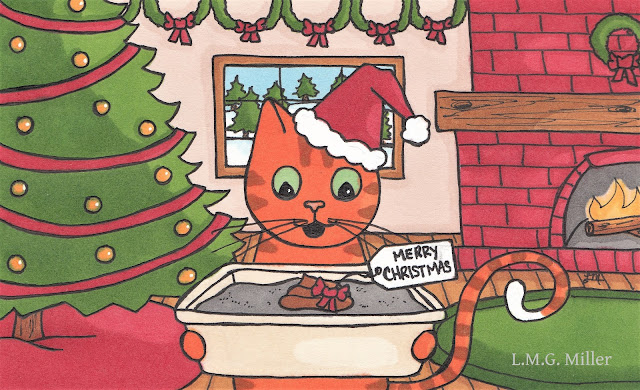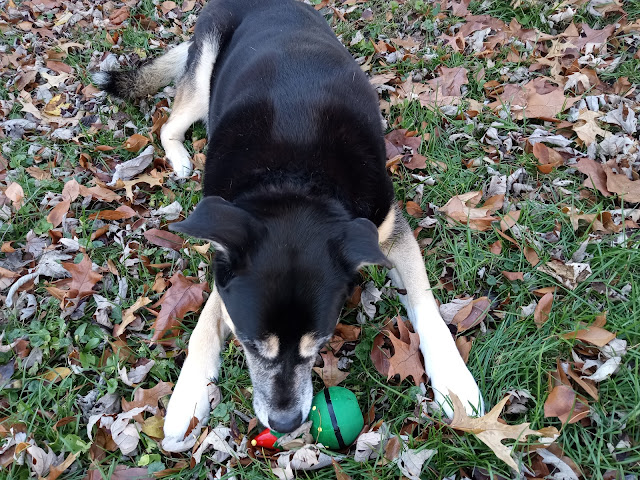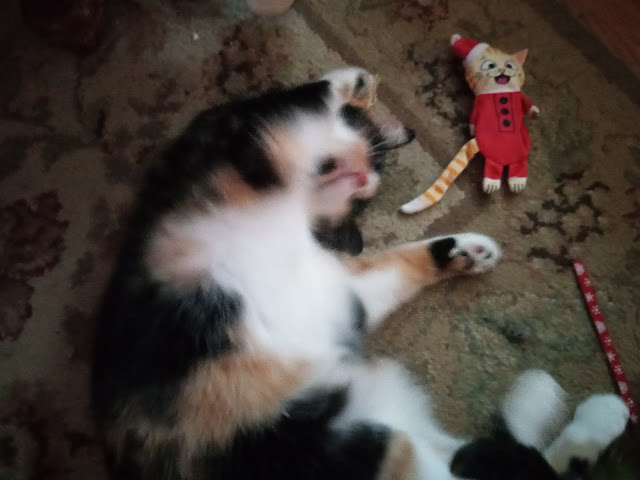Hello, friends! I really didn't want to miss any posts during the Twelve Days of Christmas, or to post one as late as this. But, here we are. My ancient laptop is really, truly on its last leg these days, and I couldn't even get it to work on Friday or most of yesterday. I do have it working in some regard now, but I have even better news. Thanks to a Christmas gift from my amazing parents, I will very soon finally have a new, working laptop again, which I plan to use to really get back on track with blogging and writing.
I'll stop rambling now, and get to today's somewhat short post. It's New Year's Eve, which we're pretty sure we don't have to tell any of you. That said, we want to thank you all for your friendship and for just being amazing people all throughout 2023. We're so grateful for this amazing community. I also have to express my gratitude for my furbabies' health this year. After last year ending with Astrid's surgery for her torn CCL, and soon after that Evan's hospitalization for a urethral obstruction, I am so thankful that all my kitties and my pup had an overall healthy year in 2023. I'm also grateful that the same can be said for my human family.
We hope all of you friends of ours end 2023 with much health and happiness, and that your 2024 is filled with many blessings!
And, of course, Merry Seventh Day of Christmas!
Today's tip on winter feral care is to remember to put water out for ferals and strays you care for. This sounds and often feels impossible, given that water freezes in cold temperatures. However, it is often possible to make water accessible to ferals or strays even in the winter months. Yesterday's tip discussed ways to successfully feed moist food to ferals in the winter, and most of those methods will also work for water. You can start by simply checking the water as often as possible, and removing ice or refreshing the water to ensure that it remains a liquid and not a frozen solid. You can also warm the water bowl, or even put out warm water, to delay its freezing. Other options include putting microwavable heat pads beneath the water bowl, using an electric heated bowl, or using another heat source in the area where the water is kept. With all such options, though, always keep safety in mind, and only choose and use heated products that best prevent burns and fires.
There are a couple of other considerations to make when putting water outside for ferals and strays in the winter months. To begin, as is possible, try to keep water bowls elevated off of the cold ground, to help keep it from freezing rapidly. In addition to this, using a deep bowl inside of a wide bowl will also help it to freeze less rapidly. Another option is to have a source of running water, such as by offering water in some sort of fountain, as moving water does not as easily freeze. And yet another way to help keep water from freezing rapidly in the winter is to put the bowl in the sun.
It also important to note that, as is possible, try to avoid putting water directly beside where ferals or strays might sleep. This is because spills can indeed happen, and damp bedding material can make warmth and comfort difficult. So, there are many considerations to make when successfully offering water to ferals and strays in the winter months, but it is indeed possible, and of course also beneficial to them and their health.



















































